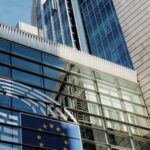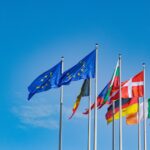The SEC rule is out! It has been delayed for over a year, watered down, and will still face intense legal challenges. A more ambitious rule would have provided investors with better information in their attempts to efficiently allocate capital in the age of climate change and would have reduced the challenges of regulatory fragmentation on US firms. However, US listed companies still have a rule, and here’s an overview how it compares to other ESG Disclosure frameworks of reference to date.
Main Take Away Comparing US SEC Rules on Climate with CSRD/ESRS and IFRS requirements to date
US SEC Rules were the fruit of intense discussions. Expectations were not high. For US companies engaged in trade and financial transactions outside the US, the bar is going to be high to match international partners. Particularly so:
- The scope of companies remains limited to a few large corporations. This means that all other U.S.-based companies will continue to operate without any obligation, and will have to make an effort increasingly supported by other standards and regulations when they will need to sell products and services outside the U.S., for example.
- The Chinese exchanges recently endorsed double materiality for listed companies. This makes even more the case to encourage at very least large companies to conduct double materiality and base sustainability strategy and disclosure from there. This is way beyond what’s expected from companies listed in the US under SEC juridiction
- The US SEC has struggled to produce work on climate issues alone in a very polarized context. Climate is not enough. COP 28 yet showed just how important the issue of biodiversity is. Human rights issues, such as mitigating forced labor under the Uyghur Forced Labor Prevention Act (H.R. 6256) can be also calling for clarity on disclosure. US SEC worked with a mandate to limits itself to the climate issue alone at a time when investors need clarity on a much broader scope of environmental, social and governance issues.
- The CSRD is particularly insistent on the means expected to be put in place to ensure that companies make progress on the risks identified. This type of effort is not expected to be shared under these rules, leaving investors in the dark about how assets intend to address these issues.
Overview of SEC Rules Compared with CSRD/ESRS and IFRS on ESG Disclosure
Here’s an overview of how SEC rules compare with CSRD/ESRS and IFRS ESG disclosure requirements.
| ISSB IFRS S1+S2 | EU CSRD / ESRS | US SEC Rule | |
| Region | Worldwide | EU & Companies doing business with companies located in the EU | US |
| Body | Private initiative: IFRS | Regulatory body: EFRAG | Regulatory body: US SEC |
| First year of enforcement | 2024 | 2024 | 2025 for climate risks 2026 for emissions |
| ESG Scope | Environmental Social & Governance themes | Environmental Social & Governance themes | Draft themes to be finalized in 2024 |
| TCFD | Aligned | Aligned | Lighter. Not all TCFD recommendations required |
| Climate related emission scope | Scopes 1, 2 & 3 | Scopes 1, 2 & 3 | Only scopes 1 & 2 Companies headquartered in California eligible to SB 253 yet have to also report on scope 3 emissions |
| TNFD | N/A | Aligned | N/A |
| OECD Due Diligence Standards | N/A | Aligned | N/A |
| User target | For profit-oriented entities, including public sector business entities | All entities subject to the EU CSRD including most SME companies and above headquartered in the EU as well as most SME companies and above outside the EU doing business with EU companies | Large listed companies |
| Number of companies | Voluntary. Local juridiction initiatives may clarify over time minimum scope of companies expected to comply with these standards | > 50,000 companies in scope | < 10,000 to date |
| Inclusion of SMEs | Yes – Requirements to be clarified | Yes – Phase-in planned | Yes – Requirements to be clarified |
| Scope of ESG disclosure | Single financial materiality using methodologies in place for 15+ years | Double materiality (scope included across both a financial and impact materialities) under close open source guidance and tools provided by EFRAG. Also endorsed in China for listed companies. | Single financial materiality using methodologies in place for 15+ years |
| Scenarios & Strategy | Required to assess the resiliency of the business strategy | Required to assess resiliency and disclose information related to how companies intends to act upon risks and improve governance as deem appropriate | No Requirement |
| Executive compensation | Requires disclosure of executive compensation linked to climate-related issues | Requires disclosure of executive compensation linked to climate-related issues | No Requirement |
Ksapa operates across the globe, including with US companies, to design and deploy sustainability programs consistent with US SEC rules, CSRD/ESRS and IFRS requirements. Our approaches are based on robust methodologies with strong business and financial perspective.
Find out more:
- Contact us : contact@ksapa.org
- Visit our articles and publications on human rights : https://ksapa.org/advocate/blog/
Solène part of Ksapa's consulting team, working notably on human rights and sustainability.
With a keen interest for climate issues and circular economy, she has previously worked within Beiersdorf’s Sustainability Team where she tackled issues of responsible sourcing and human rights.
Solène holds a Master's in marketing and communication, as well as a master in creative industries and social innovation from the EDHEC Business School.
She speaks French, English and Spanish.






